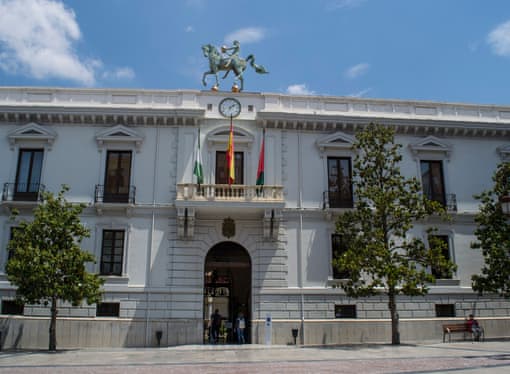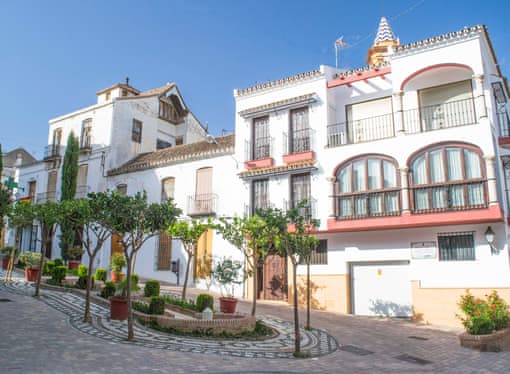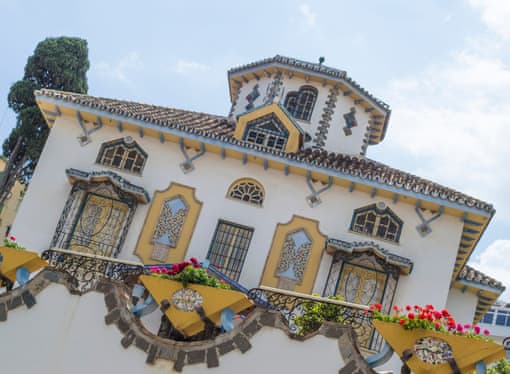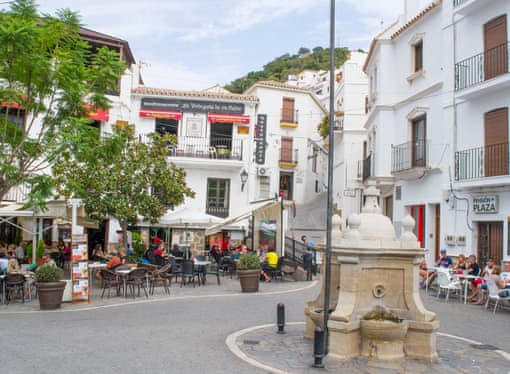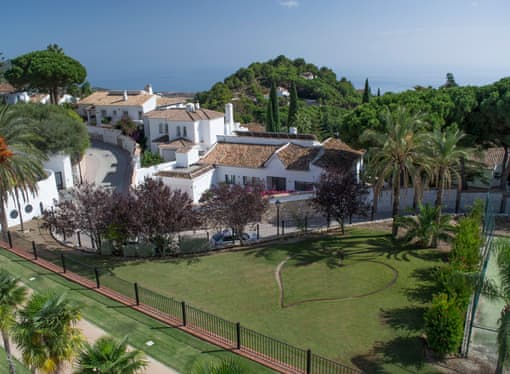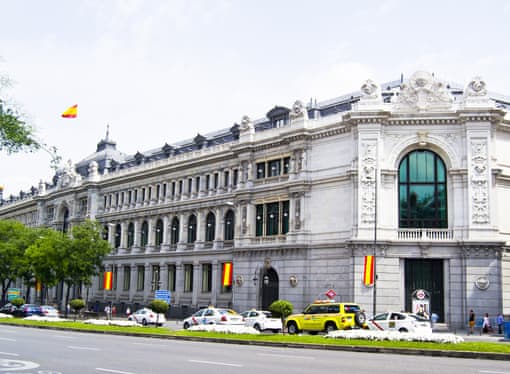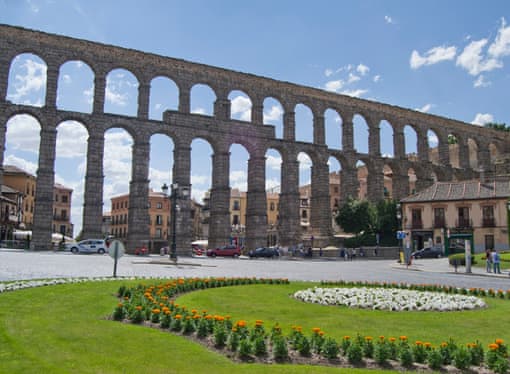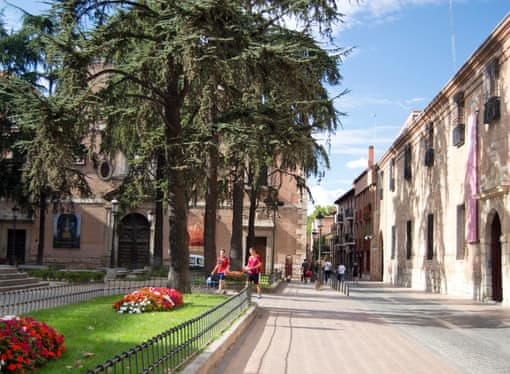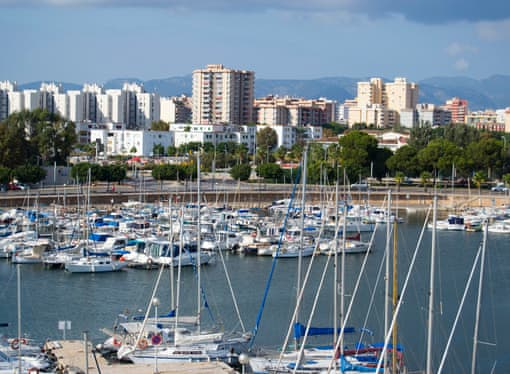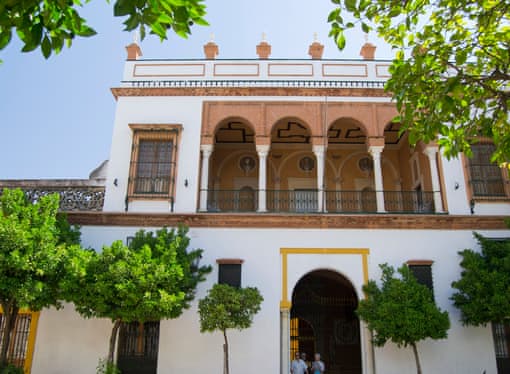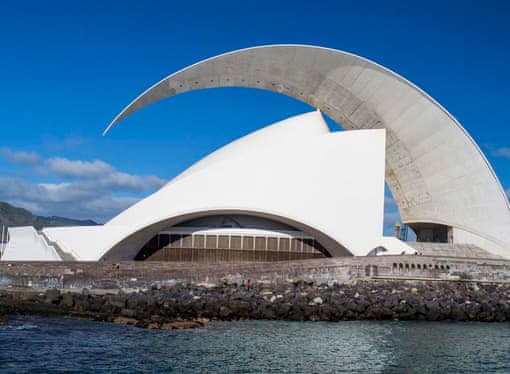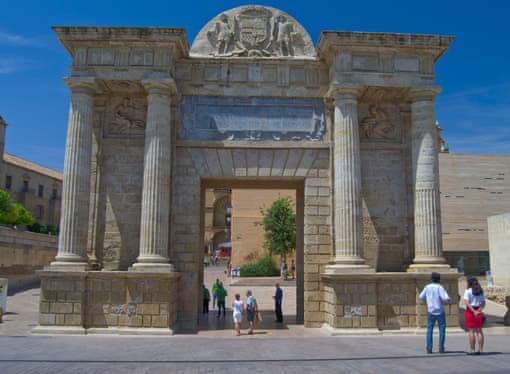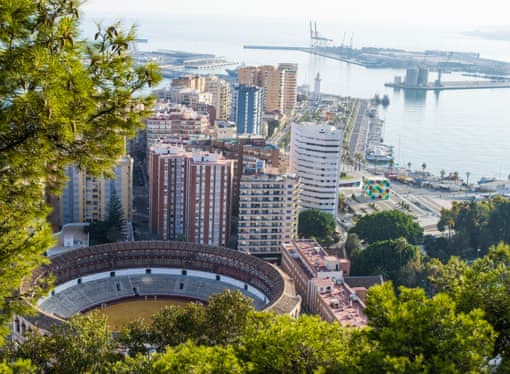









Spain Halal-friendly holidays general information
Halalbooking’s Guide to Halal Holidays in Spain
Spain is one of the top three destinations for international tourist arrivals worldwide, receiving over 75 million visitors. It certainly has an alluring mix of beach holidays, city break destinations and a rich cultural heritage, enhanced by its sunny Mediterranean climate.
For Muslims, Spain may not be an obvious holiday choice, so you will perhaps be surprised to learn that its government is actually making an effort to attract Muslims to enjoy halal holidays. Spain’s official website has a whole section dedicated to this topic, which is a useful resource when you are planning your visit.
Spain is easily accessible with regular, cost-effective flights especially from major European centres, and particularly during the summer months.
What to expect as a Muslim on holiday in Spain
Spain has a long Islamic history, with parts of it under the Moorish rule for over 700 years, notably the region of Andalusia. In more modern times, its Muslim population has mostly been due to its large Moroccan minority, which is one of Spain’s oldest immigrant communities. In fact, Moroccans didn’t require a visa to enter Spain until 1985. These days, around 4% of Spain’s population is Muslim.
As mentioned previously, the Spanish government is keen to attract visitors for halal holidays in Spain. As part of this initiative, Spain has set up a consortium, which is run as part of the General Administration of the Spanish state, which is known as Casa Arabe. It has its headquarters in Cordoba and Madrid and part of its remit is to organise films, exhibitions and events throughout the year to showcase Islamic Culture. Its motto is ‘where Spain and the Arab world meet’ and it’s certainly well worth looking at their website to see what’s on during your visit, if you’re planning to stay in Andalusia, Madrid or Cordoba. If you’re thinking of visiting Spain during Ramadan, then you will find that the Casa Arabe organises a programme of special events in Cordoba known as the Noches de Ramadan.
Popular destinations and properties for Muslims in Spain
Perhaps our most popular destination in Spain is the region of Andalusia, with its atmospheric cities of Granada and Cordoba and its beautiful Costa del Sol. It has a rich Islamic heritage from its time under the Moorish rule and it is here where Spain’s halal hotels are situated, in the popular tourist resorts of Torremolinos and Marbella on the Costa del Sol. The Alanda Hotel in Marbella and the Costa del Sol Hotel in Torremolinos, both serve halal food and are ‘dry’ hotels serving no alcohol at all. They are a great base for exploring the region and its many historic and cultural attractions. Those who prefer to stay more centrally in Granada itself or in Cordoba have a choice of well located, high quality hotels which will guarantee an alcohol-free room if you book on halalbooking.com.
We also have a wide choice of halal villas in Spain, perfect for Muslim families. These are mostly on the Balearic island of Majorca (Mallorca). They are big enough to accommodate a large family in comfort and all have pools, which provide complete privacy and are not overlooked in any way. Alternatively, you can choose a villa on the Canary island of Tenerife if you prefer the warmer winter climate.
Many of our halal-conscious holidaymakers choose to stay in or near the popular city break destination of Barcelona. You can choose from apartments located in Barcelona itself or stay in a villa on the surrounding Catalonia coast. The choice is yours!
Spain’s Islamic Heritage
Hispania was the Latin name by which the whole of the Iberian Peninsula, which takes in modern-day Spain and Portugal, was known in ancient times. After the fall of the Western Roman Empire in 476 it was ruled by the Visigoths until April 30th 711, when the renowned Muslim General Tariq ibn-Ziyad landed at Gibraltar and went on to conquer most of the area, bringing it under the rule of the Islamic Umayyad Caliphate.
An interesting fact is that the name ‘Gibraltar’ actually comes from the Arabic ‘Jabal At-Tariq’, which means ‘rock of Tariq’ ie the place where he landed. Although Islamic or Moorish rule only lasted for less than 30 years in the northwest region of Galicia, in Granada in the southeast it lasted for some 781 years. The Islamic rulers referred to the Iberian peninsula as Al-Andalus, giving rise to today’s name of Andalusia, Spain’s southernmost region. The peak of Muslim civilisation in Spain came with the Umayyad Caliphate of Cordoba in the 10th century. Under Moorish rule libraries and colleges were established and the arts flourished. Many of Andalusia’s most famous monuments were built during this time.
Islamic rule ended when Granada was conquered in 1492 by the armies of a recently united Catholic Spain, following the marriage of Ferdinand II of Aragon and Isabella 1 of Castille.
Top Places to Visit for Muslims on Holiday in Spain
Here are our highlights for places to visit in Spain. Don’t forget to check online before you travel, as in most cases it’s possible – and even obligatory – to purchase tickets for tourist attractions online. It definitely saves you waiting around in queues and it is often cheaper too.
Granada
This beautiful city was home to the rulers of the Ummayad Caliphate. A highlight will be a visit to the Alhambra, the magnificent hilltop fortress and palace which surveys the city. In the 13th century, the first Nasrid King, Mohammed I established it as his royal residence and his successors, Yusuf I and Mohammed V transformed it into a splendid palace. One of the best views of the Alhambra is from the beautiful gardens of the Mezquite Mayor de Granada, or the Great Mosque of Granada. Make sure you visit the old Arab quarter of Albayzin too!Cordoba
The Great Mosque of Cordoba or the Mezquita-Catedral de Cordoba, as it is known locally, is one of the greatest and oldest architectural works of the Al-Andalus period of Spain. Its site mirrors the complex history of the area – it was first home to a temple to the Roman God, Janus; then a Visigoth church; later a mosque which was rebuilt to the current design; and then finally changed to serve as a Catholic church. Its architecture is stunning with a prayer hall filled with elaborate columns, a dazzling dome covered in gold mosaics, a courtyard surrounding a fountain, an orange grove and a minaret which is now encased in a bell tower. Please note that it is not permitted for Muslims to pray here.Barcelona
Barcelona was only under Muslim rule for around 85 years – a short period in its long history, with very little left to see today. Barcelona more than makes up for this with its stunning modern architecture, however, and it is well worth a visit to marvel at the modernist works of Antoni Gaudi alone, including the stunning Sagrada Familia Church, and the futuristic Casa Mila. Other than that, it’s a great place to relax and soak up the atmosphere.Majorca
The beautiful capital of the Balearics may be best known for its beaches, but it also still retains intriguing traces of its Muslim heritage. Visit the narrow streets of the old Arab Quarter of Al Mudaina in the capital of Palma de Mallorca, admire the Moorish Gardens of the former Muslim Wali or Viceroy’s house, the Jardines de Alfabia and pay a visit to the Banys Arabs, the Moorish bath house, sadly no longer in operation. An interesting fact is that the stunning Gothic cathedral, unusually, faces Mecca, since it was built on the site of a former mosque.
Restaurants and halal food in Spain
Spanish food is delicious, but, unfortunately, it does tend to be heavily centred around pork, which is clearly a big problem for Muslim visitors. It’s best to be cautious and check exactly what is in sauces, minced meat or other dishes to be absolutely sure of eating only halal food. There is a system of halal certification in Spain, so you can look out for halal certificates – although their use is not yet widespread. Also, it’s wise to note that even if a hotel does have halal certification, alcohol may still be served.
The Spanish tourist office website has a handy list of halal restaurants, including some serving traditional Spanish dishes. These include Noor in Cordoba, whose Michelin-starred chef Paco Morales is focused on creating halal haute cuisine, based on ingredients which were available during the period of Al Andalus.
There is also a good choice of vegetarian and seafood options in Spain. Other cuisines which are widely available and most likely to be halal include Lebanese, Moroccan, Syrian, Indian, Pakistani and Turkish restaurants.
Family-friendly holidays in Spain
Staying in one of our halal villas is probably the best way to holiday in Spain for families with younger children. You will have your own swimming pool to enjoy together in complete privacy, and it may be easier to cater for any fussy eaters. The Spanish people are generally very welcoming and love children. There is plenty to do, from beaches to sightseeing. Highlights for children will include:
- L’Aquarium de Barcelona
- The Mount Teide volcano or a whale or dolphin-spotting trip from Tenerife
- Special guided tours for kids at the Alhambra in Granada and the Science Park.
Altogether, Spain is a great family holiday destination!
Islamic Prayer Facilities and Mosques in Spain
There are now more than 250 mosques and Islamic centres in Spain. The Spanish Ministry of Justice’s website provides the document with a city by city listing and there are mosques in all main tourist destinations including Granada, Madrid, Marbella, Malaga and Valencia. There are also mosques in Palma de Mallorca, capital of Majorca.
With some foresight and planning, it should, therefore, be possible for Muslims to find places to pray in most places in Spain. Although most Spanish airports (except for Madrid) do not have dedicated mosques, they do have multi-faith prayer rooms where Muslims are welcome.
If you’re spending your holiday near Madrid then be sure to visit the M30 Mosque and Islamic Cultural Centre (Centro Cultural Islamico) which is the largest masjid in Europe, with Qurans from all over the world.
So now that you have been inspired as to what to see and do, it only remains for you to browse our selection of villas and halal hotels in Spain and find the one which best suits your requirements and budget…
By registering I accept Halalbooking’s Terms of Use and Privacy & Cookie Policies.







